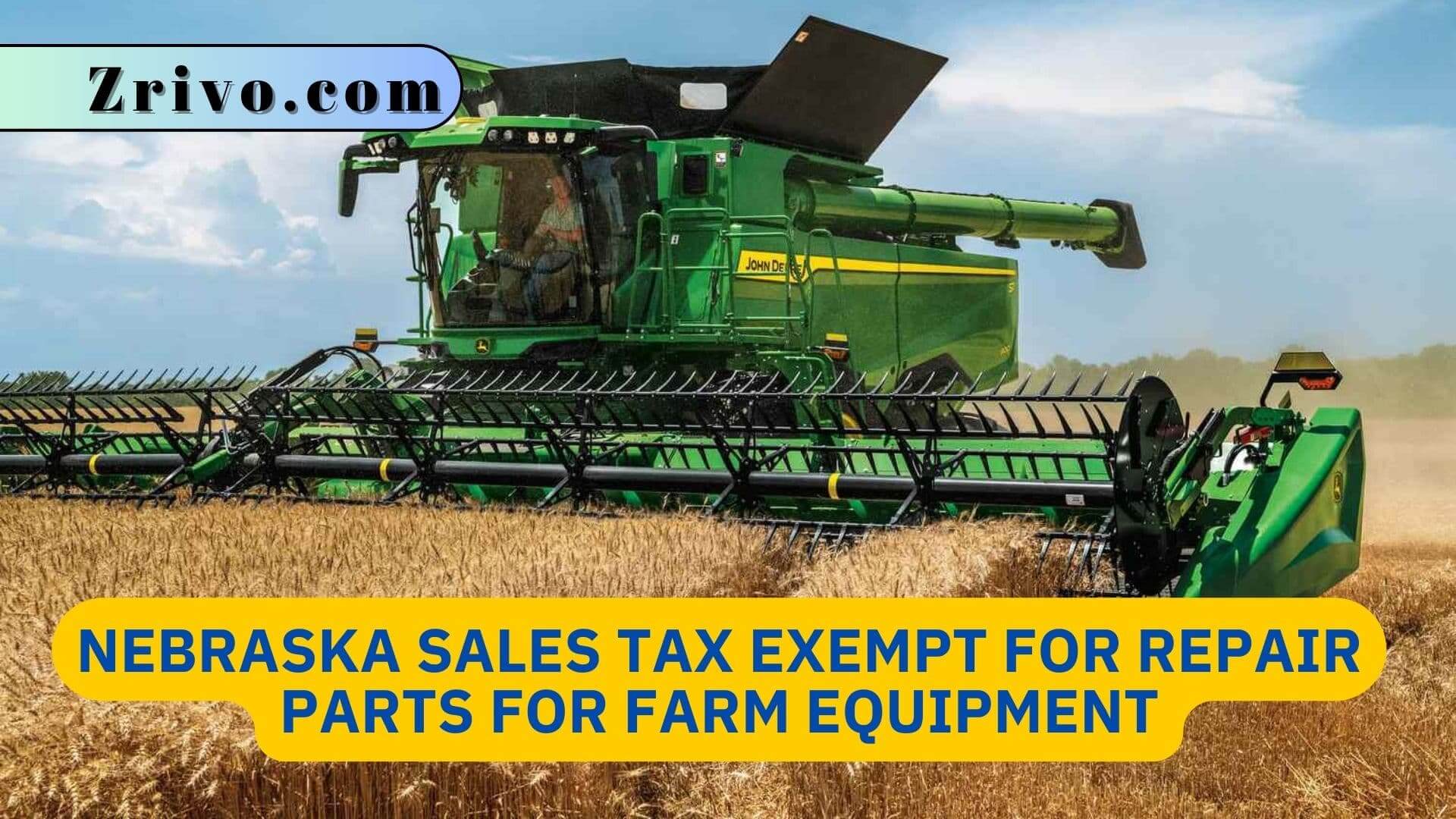
Farmers and ranchers often make retail sales of the products they produce. In addition, they may also provide taxable services, such as welding or well drilling. Those who sell tangible personal property or taxable services must register to collect and remit state and local sales taxes (see How to Register, herein).
Tangible personal property is defined as an item with a monetary value that can be moved from one place to another. Examples include farm machinery and equipment, livestock, tools and hand tools, grain, feed, fencing, pipe, and seed. In addition, agribusinesses often purchase taxable repair and maintenance items, such as fuel, oils, lubricants, and tires.
Generally, the law exempts farm machinery and equipment from Nebraska sales tax only when they are used directly in cultivating or harvesting crops, raising or caring for animal life, or collecting or processing an agricultural product on the farm or ranch. However, agribusinesses must pay sales tax on the new tire excise tax on truck or tractor tires sold to them that are not for use on farm equipment, as explained in the Nebraska Department of Revenue Information Guide 6-368.
The statutory definition of warehouse machinery and equipment is more restrictive than the statutory definition of farm machinery and equipment. For example, a grain elevator’s purchase of a silo, sifter, and bin equipment does not qualify for the warehouse machinery and equipment exemption because it does not meet the statutory definition of integrated production machinery.

How Does The New Nebraska Farm Tax Exemption Legislation Work?
The Nebraska Legislature has passed numerous pieces of legislation to incentivize and support agri-businesses and producers. These include the Beginning Farmer Act, the Livestock Modernization Act, and grants to projects like the Sustainable Beef processing plant in North Platte.
The farm tax exemption allows agricultural equipment and machinery to be purchased without paying sales and use taxes. This includes new and used equipment, as long as it’s used for commercial agriculture purposes. This includes cultivating, harvesting or raising a crop, caring for animal life, collecting or processing an agricultural product or checking and maintaining fences or windmills on real property. Generally, repairs and replacement parts for agricultural machinery are also exempt from sales tax.
However, this is a gray area with many exceptions that come down to the item’s intended use. Akin notes that if the tractor you purchase is going to be used for commercial agricultural use, then it falls under this definition. On the other hand, if you purchase a four-wheeler to check livestock or irrigate pivots, it doesn’t fit that definition and would be subject to tax.
The state legislature is debating this issue as a bill aims to change the current law. Several groups have voiced opposition to the bill, including farmers, accountants, veterinarians, lawyers, self-storage owners, and amusement game distributors. These groups argue that eliminating exemptions will increase costs, pick winners and losers by targeting certain industries, and signal that Nebraska isn’t business-friendly.